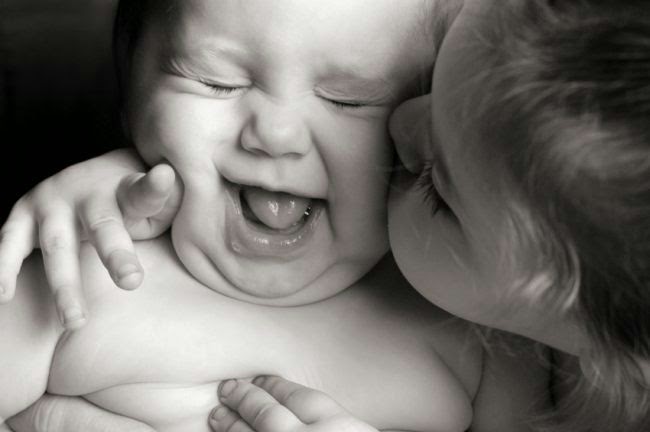I once read that when there is a new baby in the family, the
siblings feel like a wife who has been cheated on by her husband. When we had our
third boy, we did not feel any kind of aggressive jealousy going around both of
the other elder boys. I do remember though that they used to use their baby
brother’s pacifier, sit in his cot and laugh about it.
At that time, we concluded that parents play a major role in
reducing or in increasing jealousy among their children. However, the
arrival of the twins was kind of heavy on the boys, especially because the
twins were preemies and had a lot of attention.
Dealing with jealousy is one of the most difficult challenges we,
as parents, might face since it has drastic negative effects on a child’s
personality if not dealt with properly.
One of the major behaviours that might ring an alarm and make
the parents realize they need to intervene is when the child starts to
demonstrate aggressive actions and attitudes. Squeezing or pinching the baby’s hands, face,
or any other part of its body, being loud, and enjoy breaking the house rules
are all signs of the child calling for help. Here are a few ideas which might
help in dealing with jealousy:
- Dealing with aggressive attitudes:
When my third boy jumps in front of the twins and roughly rubs his face with theirs – you can imagine how annoying it can be, I know I have two options; I either shout at him curtly telling him to stop or I try to understand why my son is behaving as such.
If I choose the first option, I solve the problem temporarily
where I have to face it again soon and it might escalate and hence get even
worse. Instead, I try to get to the bottom of the problem and ask him; “Why are
you doing this? Does it make you feel better? How would you feel if somebody
does the same to you?”
You could go even further and openly
discuss the misbehaviour. Such as,” Are you doing (describe the wrong behaviour)
because you want me to tuck you in bed and I’m sitting with your sister instead
of doing so?” When you use the right words to describe a strong complex emotion
that the child is experiencing, it immediately calms him down and makes him
more attentive to what you are saying. Then explain why this is happening and
how the baby needs help since she is dependent etc.
Conducting a constructive dialogue with our children
reinforces the strong bond we have with them as it gives us a chance to listen
to what they have to say about their frustration. Moreover, these questions
will aid children in having an insight as to what is annoying them while realising
you want to help and support them. It also helps them to acknowledge that they
have their mom’s full attention - of course in a positive way.
I know it is not easy to be patient and have these issues
dealt with in a calm and composed manner every time. However, it is worth
trying. A few years ago, I attended a workshop presented by a life coach named Mrs.
Naima Lariki who have explained that a parent needs 21 days to make a calm
reaction towards the children’s troubles his second nature.
At first, you might feel like you cannot hold the anger
inside, and you directly go back to the negative reinforcement system. However,
when you put yourself in your children’s shoe you gain them as your friends and
help them in getting over their jealousy or from any other kind of irritation.
- Showing your love and appreciation to your child:
- Indulging your child with specific chores:
- Doing fun activities with your child alone:
- Avoid focusing on the problem:
- Refraining from comparing your children with each other:
There is a list of excellent books where jealousy is
indirectly tackled and how siblings can take care of each other. I highly
recommend the following:
“BYE-BYE Baby Brother”
“Silly Chicken”
“What Brothers Do Best”
Ending sibling rivalry at an early stage of children’s lives,
helps them in developing healthy relationships in the future, where love,
respect, and support form the basis of their interaction with their families in
specific and the community in general.
Pictures taken from Pinterest
Pictures taken from Pinterest



No comments:
Post a Comment